Abstract
OBJECTIVE: To examine the effect of providing new Medicare information materials on consumers' attitudes and behavior about health plan choice. DATA SOURCE: New and experienced Medicare beneficiaries who resided in the Kansas City metropolitan statistical area during winter 1998-99 were surveyed. More than 2,000 computer-assisted telephone interviews were completed across the two beneficiary populations with a mean response rate of 60 percent. STUDY DESIGN: Medicare beneficiaries were randomly assigned to a control group or one of three treatment groups that received varying amounts and types of new Medicare information materials. One treatment group received the Health Care Financing Administrations's pilot Medicare & You 1999 handbook, a second group received the same version of the handbook and a Medicare version of the Consumer Assessment of Health Plans (CAHPS) report, and a third treatment group received the Medicare & You bulletin, an abbreviated version of the handbook. PRINCIPAL FINDINGS: Results of the study suggest that the federal government's new consumer information materials are having some influence on Medicare beneficiaries' attitudes and behaviors about health plan decision making. Experienced beneficiary treatment group members were significantly more confident with their current health plan choice than control group members, but new beneficiaries were significantly less likely to use the new materials to choose or change health plans than control group members. In general the effects on confidence and health plan switching did not vary across the different treatment materials. CONCLUSIONS: The 1999 version of the Medicare & You materials contained a message that it is not necessary to change health plans. This message appears to have decreased the likelihood of using the new materials to choose or change plans, whereas other materials to which beneficiaries are exposed may encourage plan switching. Because providing more information to beneficiaries did not result in commensurate increases in confidence levels or rate of health plan switching, factors other than the amount of information, such as how the information is presented, may be more critical than volume.
Full text
PDF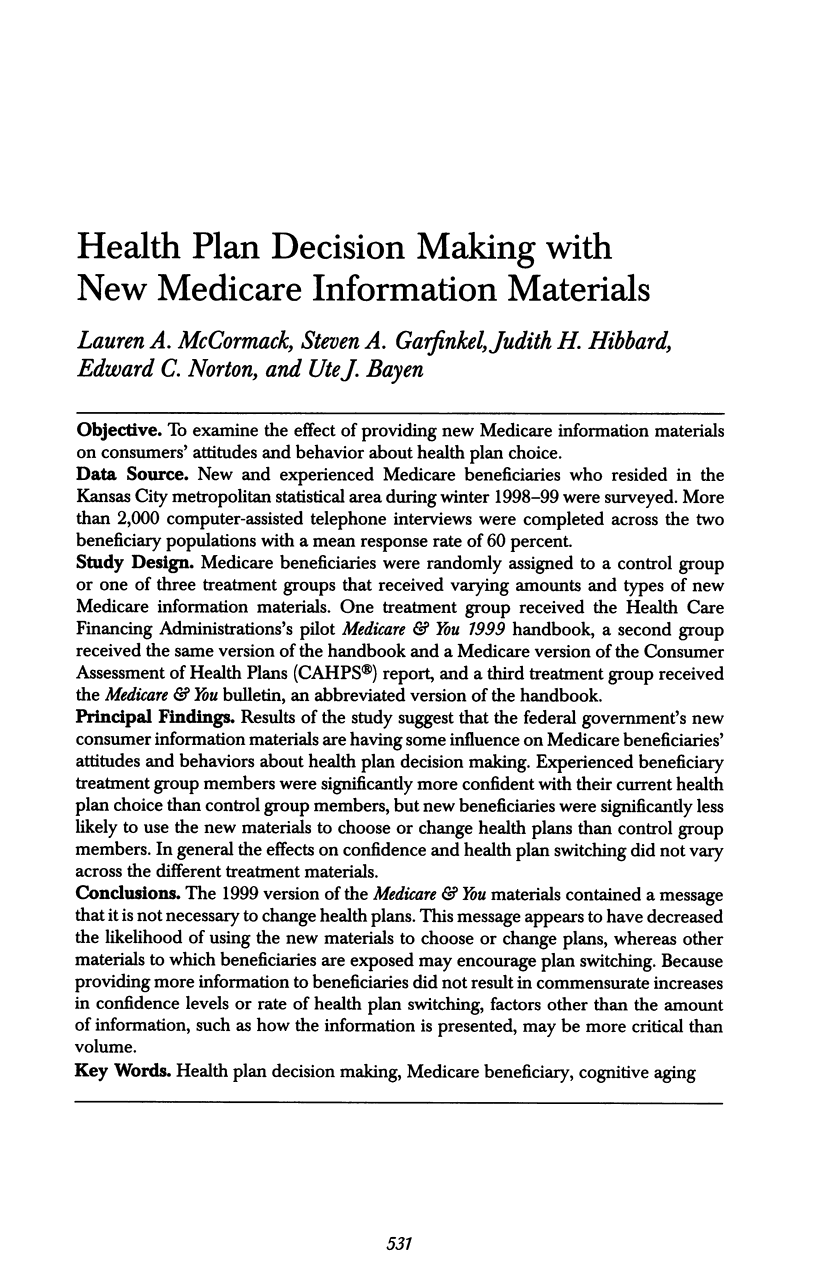



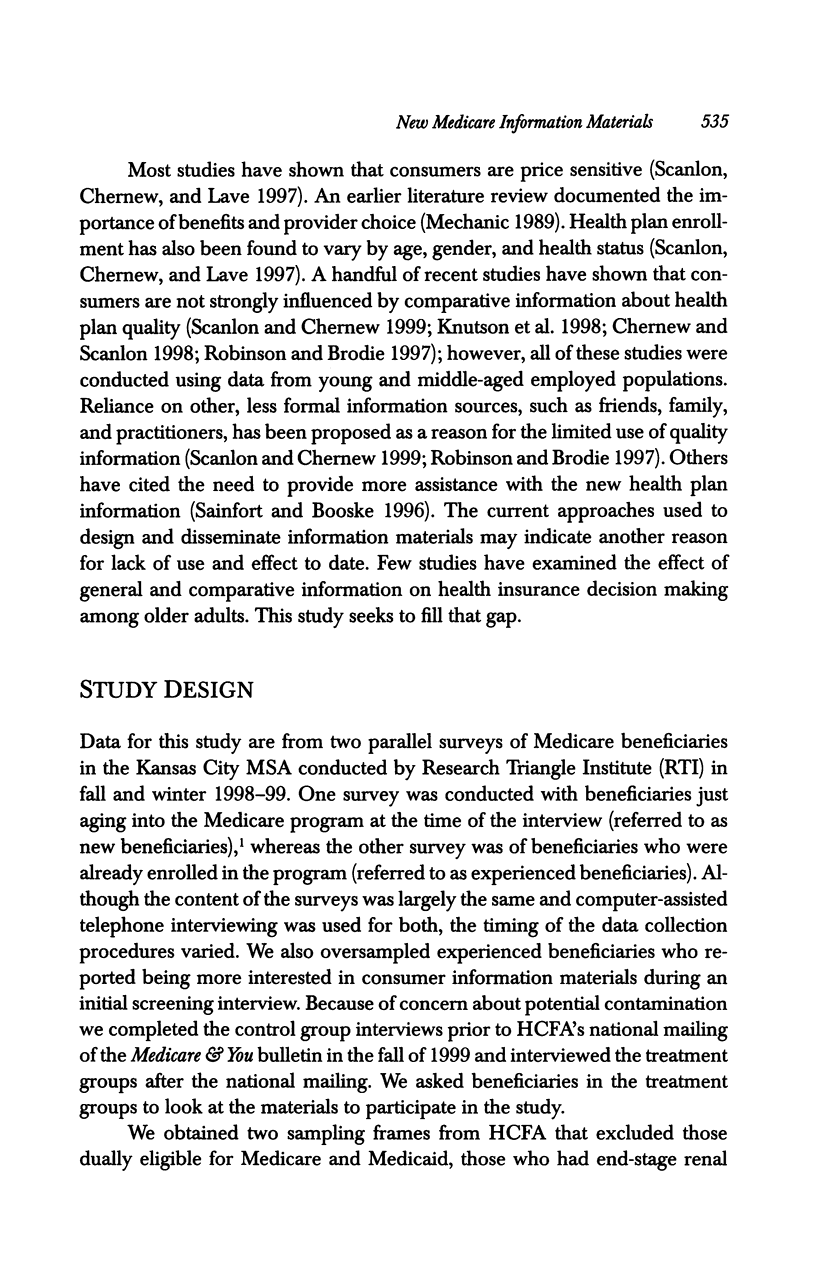

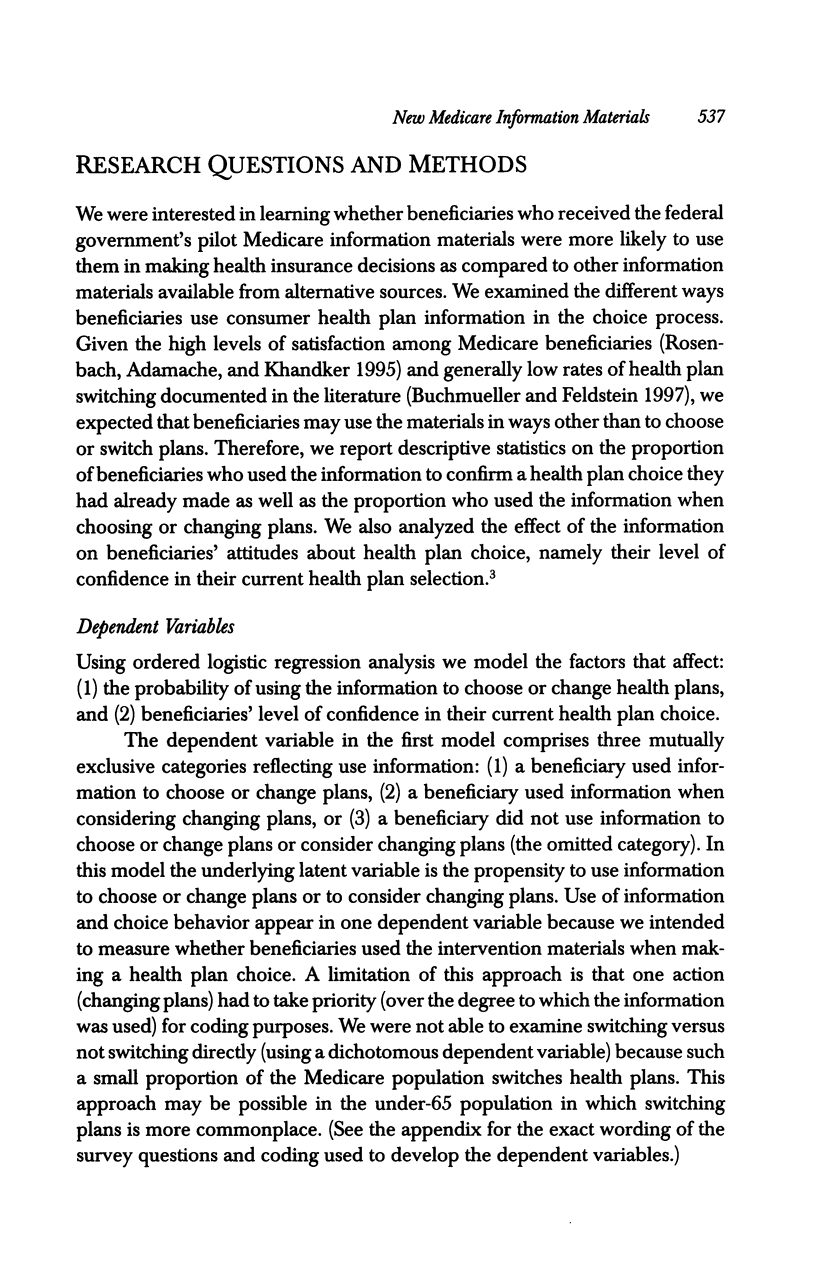

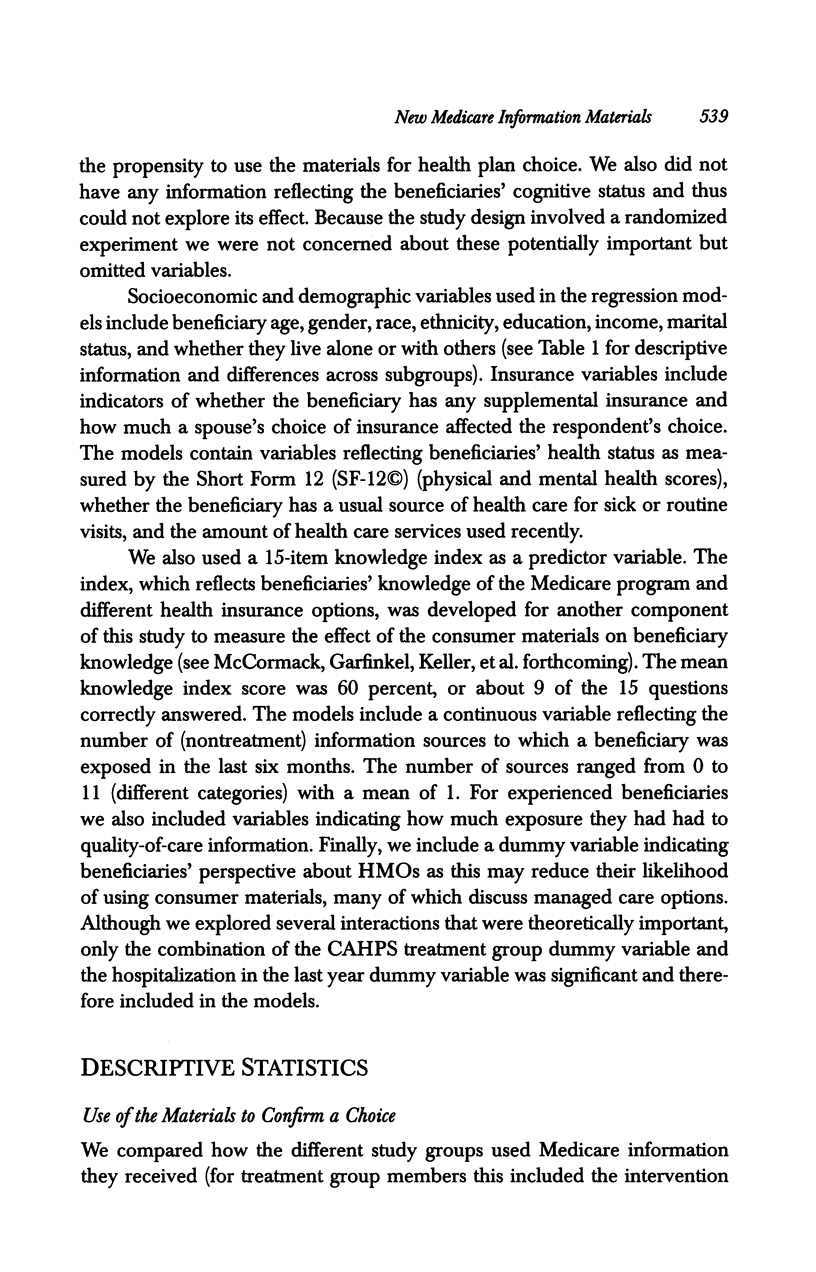
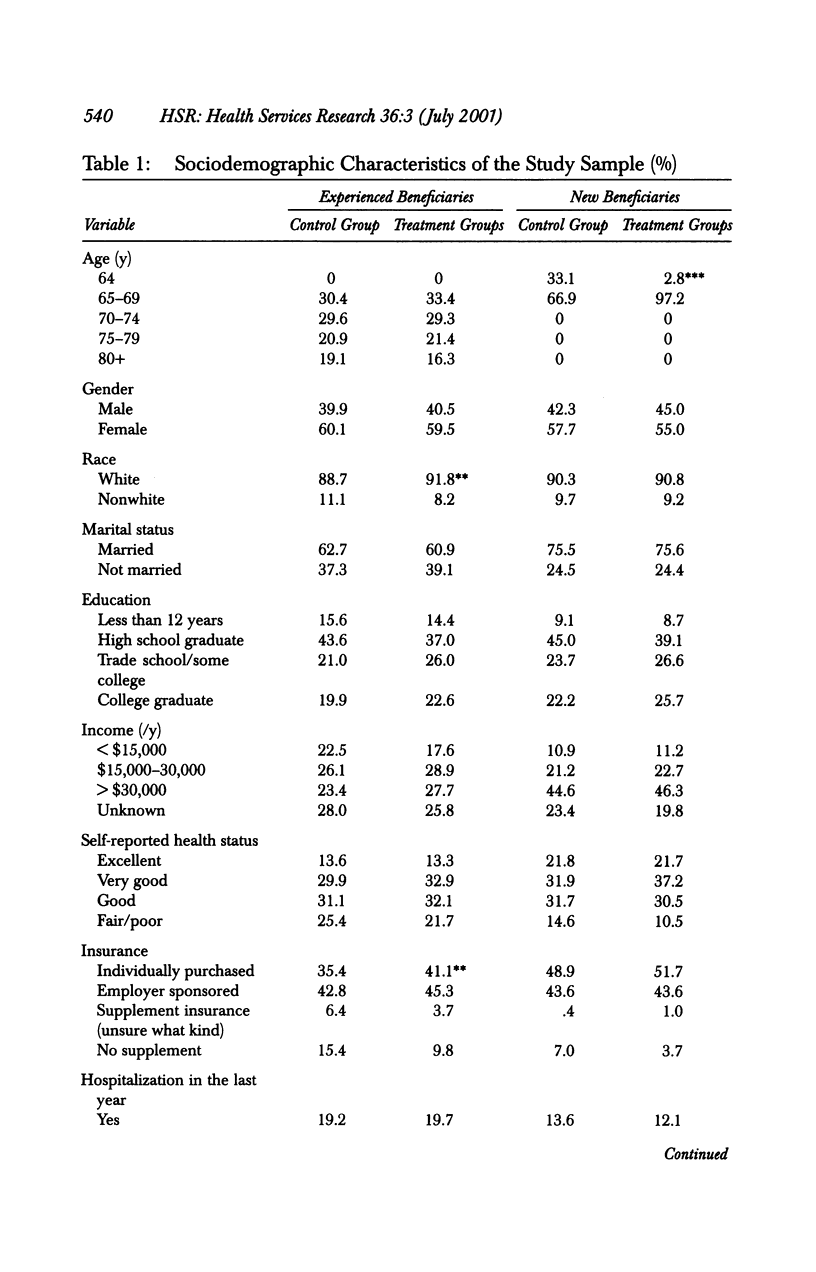

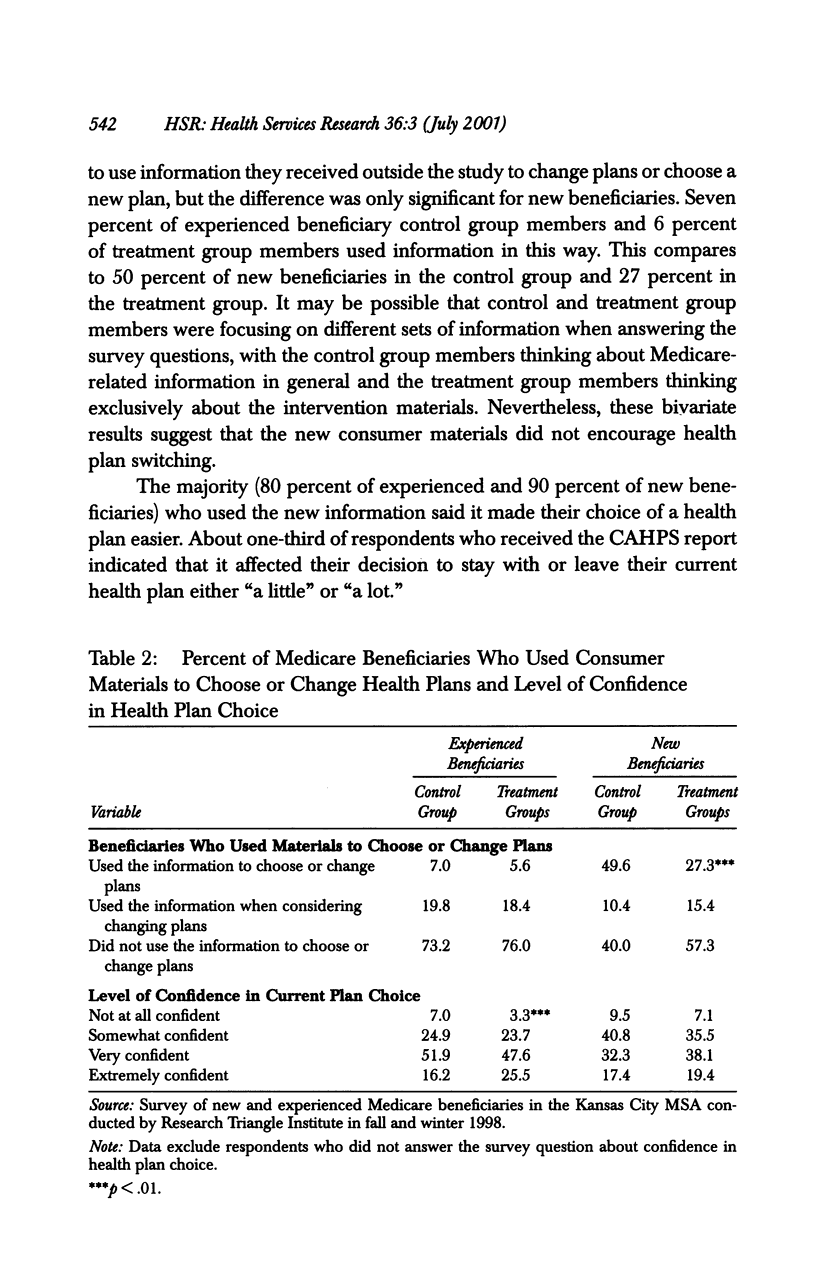
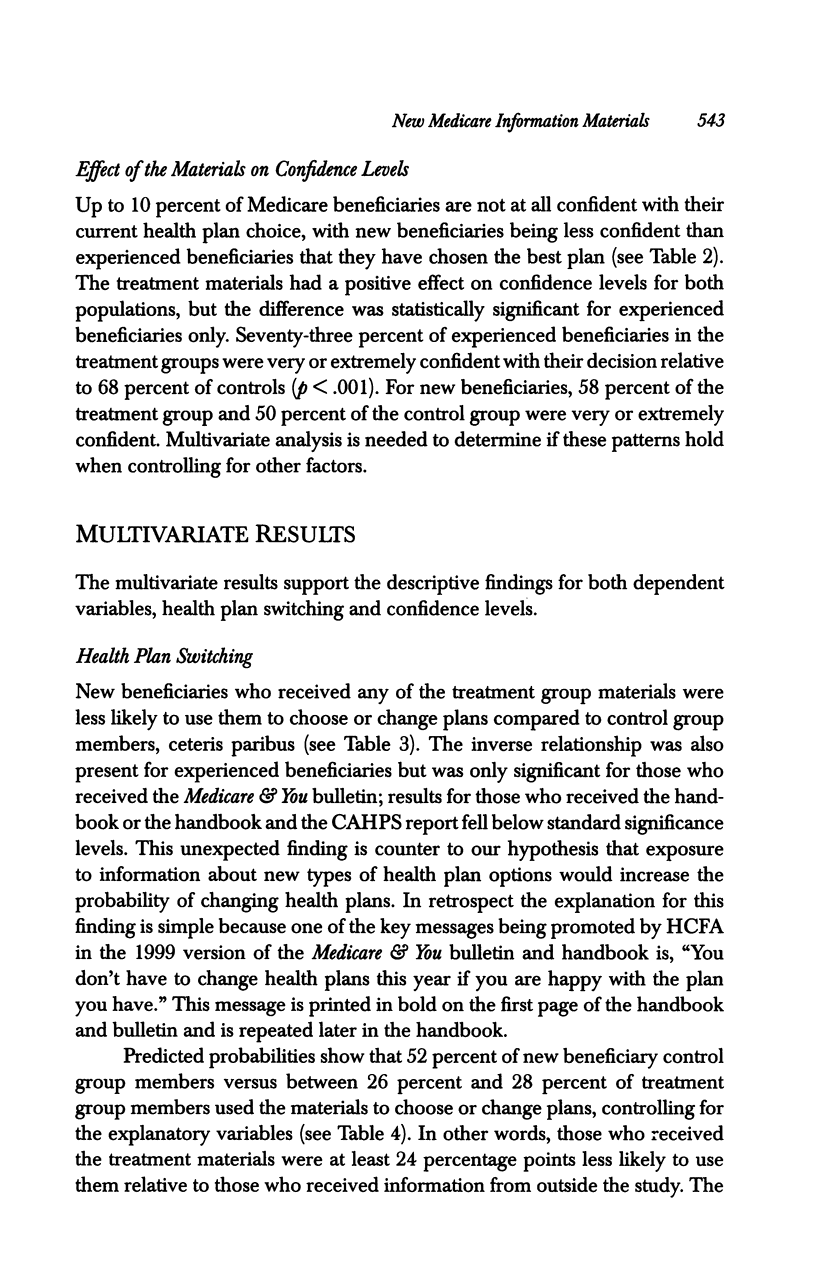
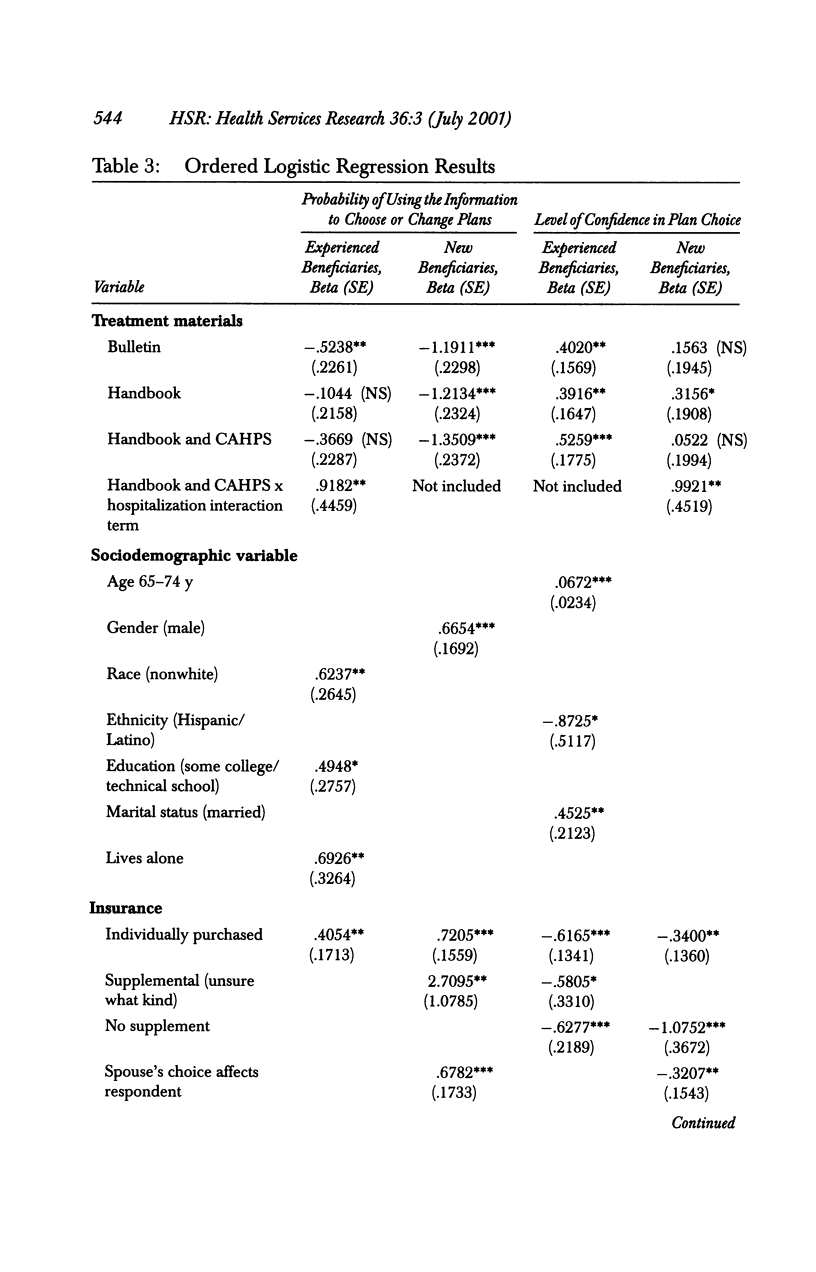
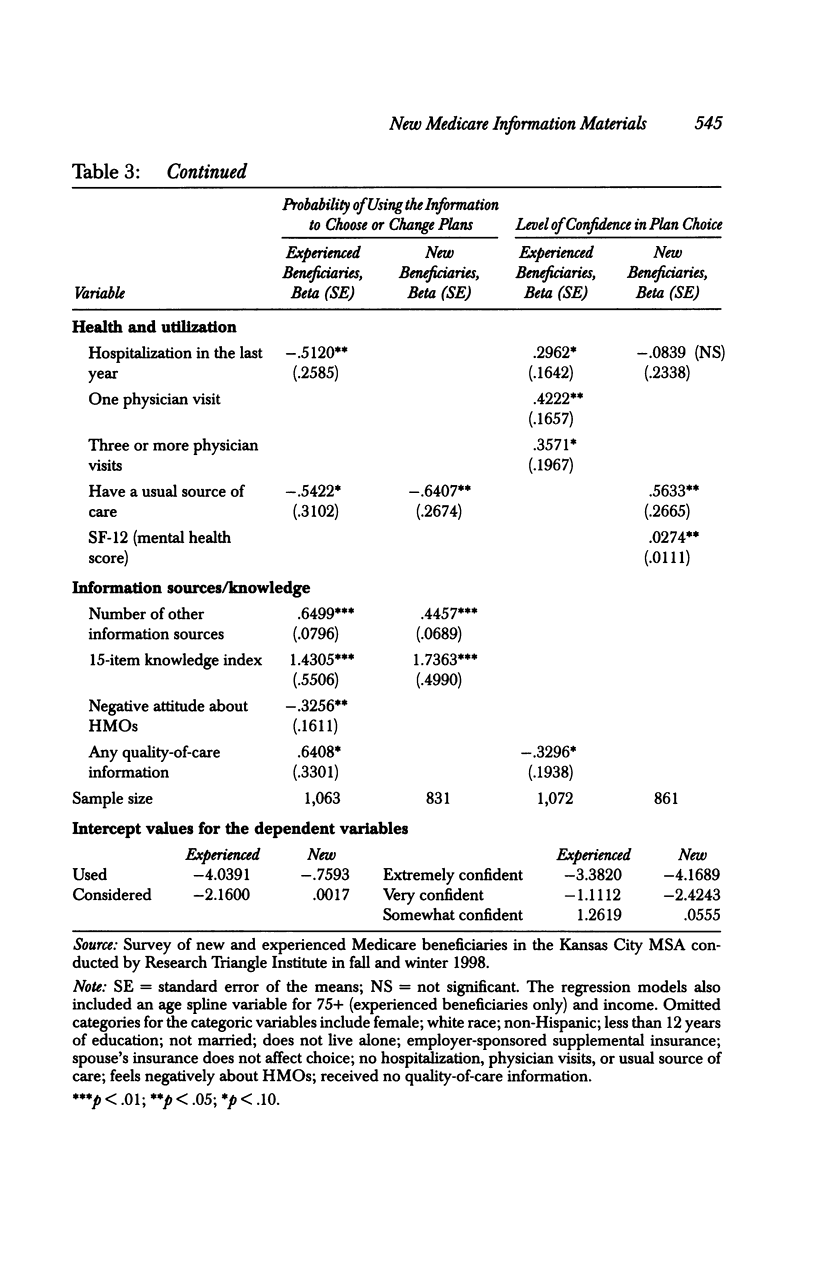

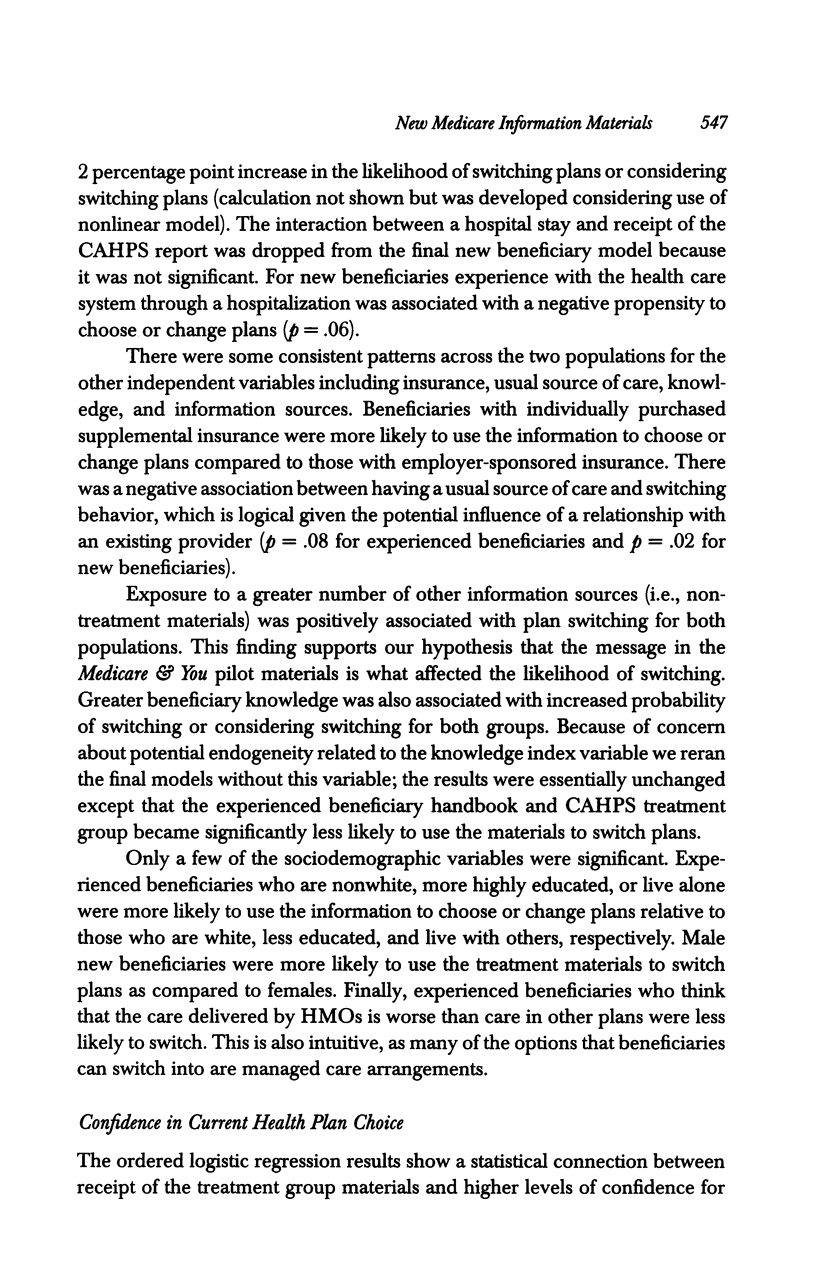
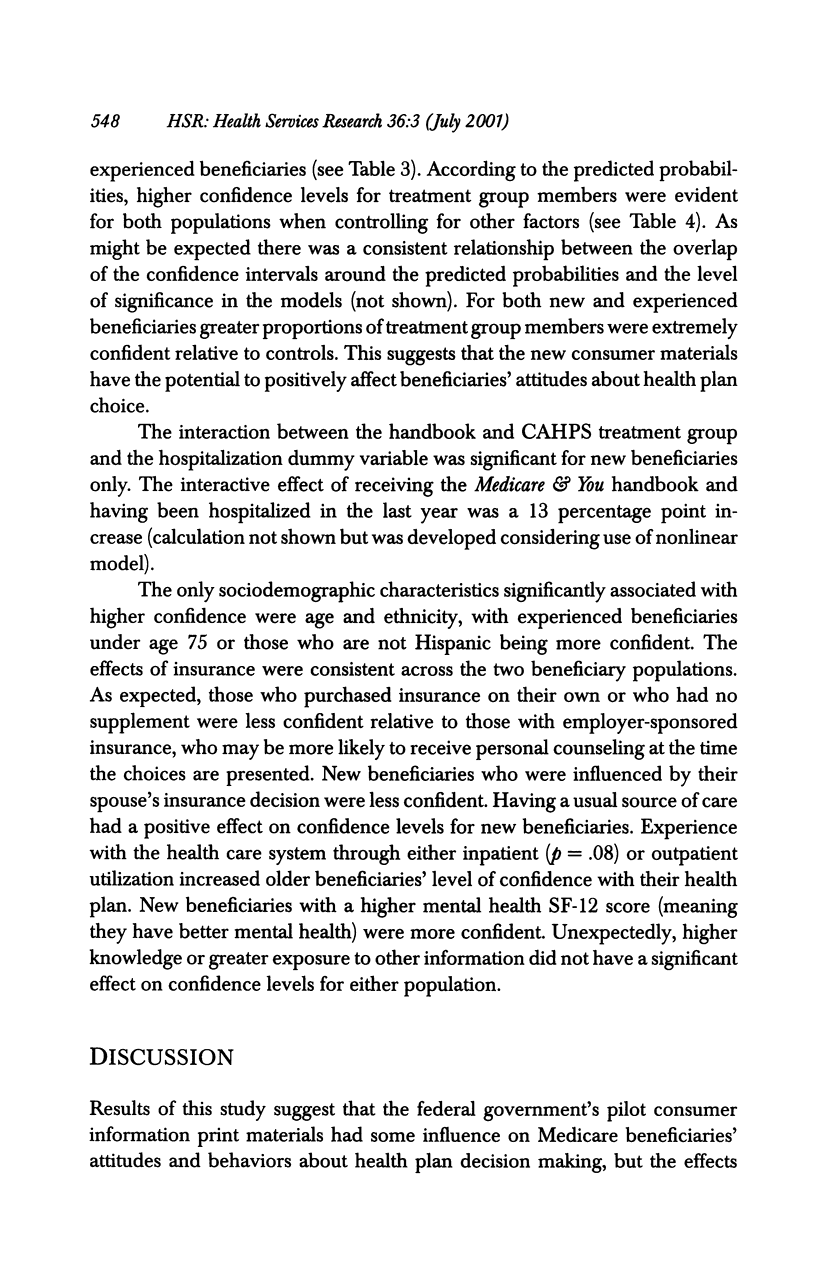


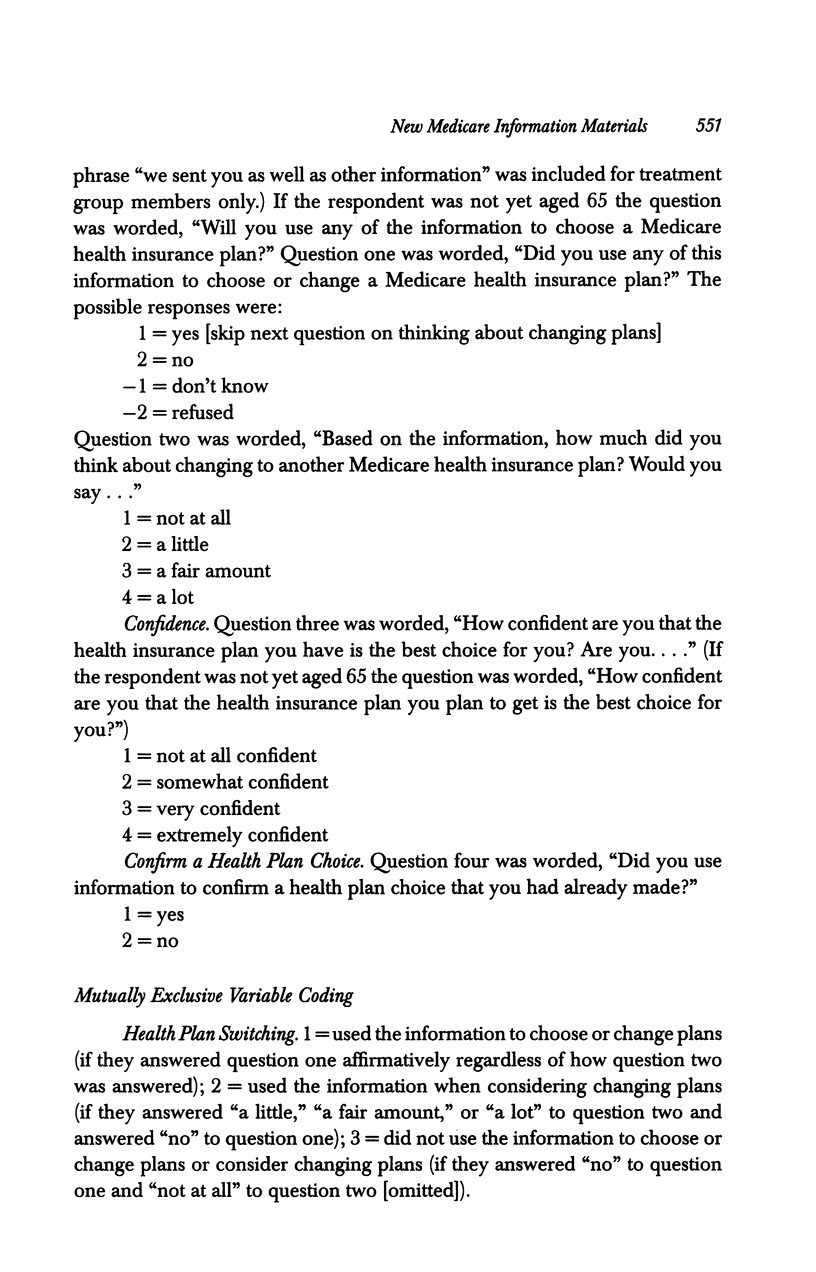



Selected References
These references are in PubMed. This may not be the complete list of references from this article.
- Buchmueller T. C., Feldstein P. J. The effect of price on switching among health plans. J Health Econ. 1997 Apr;16(2):231–247. doi: 10.1016/s0167-6296(96)00531-0. [DOI] [PubMed] [Google Scholar]
- Chernew M., Scanlon D. P. Health plan report cards and insurance choice. Inquiry. 1998 Spring;35(1):9–22. [PubMed] [Google Scholar]
- Gilinsky A. S., Judd B. B. Working memory and bias in reasoning across the life span. Psychol Aging. 1994 Sep;9(3):356–371. doi: 10.1037//0882-7974.9.3.356. [DOI] [PubMed] [Google Scholar]
- Hibbard J. H., Slovic P., Jewett J. J. Informing consumer decisions in health care: implications from decision-making research. Milbank Q. 1997;75(3):395–414. doi: 10.1111/1468-0009.00061. [DOI] [PMC free article] [PubMed] [Google Scholar]
- Kendrick R., Bayne J. R. Compliance with prescribed medication by elderly patients. Can Med Assoc J. 1982 Nov 15;127(10):961–962. [PMC free article] [PubMed] [Google Scholar]
- Knutson D. J., Kind E. A., Fowles J. B., Adlis S. Impact of report cards on employees: a natural experiment. Health Care Financ Rev. 1998 Fall;20(1):5–27. [PMC free article] [PubMed] [Google Scholar]
- Mechanic D. Consumer choice among health insurance options. Health Aff (Millwood) 1989 Spring;8(1):138–148. doi: 10.1377/hlthaff.8.1.138. [DOI] [PubMed] [Google Scholar]
- Meyer B. J., Russo C., Talbot A. Discourse comprehension and problem solving: decisions about the treatment of breast cancer by women across the life span. Psychol Aging. 1995 Mar;10(1):84–103. doi: 10.1037//0882-7974.10.1.84. [DOI] [PubMed] [Google Scholar]
- Riley G. F., Ingber M. J., Tudor C. G. Disenrollment of Medicare beneficiaries from HMOs. Health Aff (Millwood) 1997 Sep-Oct;16(5):117–124. doi: 10.1377/hlthaff.16.5.117. [DOI] [PubMed] [Google Scholar]
- Robinson S., Brodie M. Understanding the quality challenge for health consumers: the Kaiser/AHCPR Survey. Jt Comm J Qual Improv. 1997 May;23(5):239–244. doi: 10.1016/s1070-3241(16)30313-3. [DOI] [PubMed] [Google Scholar]
- Rosenbach M. L., Acamache K. W., Khandker R. K. Variations in Medicare access and satisfaction by health status: 1991-93. Health Care Financ Rev. 1995 Winter;17(2):29–49. [PMC free article] [PubMed] [Google Scholar]
- Sainfort F., Booske B. C. Role of information in consumer selection of health plans. Health Care Financ Rev. 1996 Fall;18(1):31–54. [PMC free article] [PubMed] [Google Scholar]
- Salthouse T. A. The processing-speed theory of adult age differences in cognition. Psychol Rev. 1996 Jul;103(3):403–428. doi: 10.1037/0033-295x.103.3.403. [DOI] [PubMed] [Google Scholar]
- Scanlon D. P., Chernew M. HEDIS measures and managed care enrollment. Med Care Res Rev. 1999;56 (Suppl 2):60–84. [PubMed] [Google Scholar]
- Tversky A., Kahneman D. Judgment under Uncertainty: Heuristics and Biases. Science. 1974 Sep 27;185(4157):1124–1131. doi: 10.1126/science.185.4157.1124. [DOI] [PubMed] [Google Scholar]


